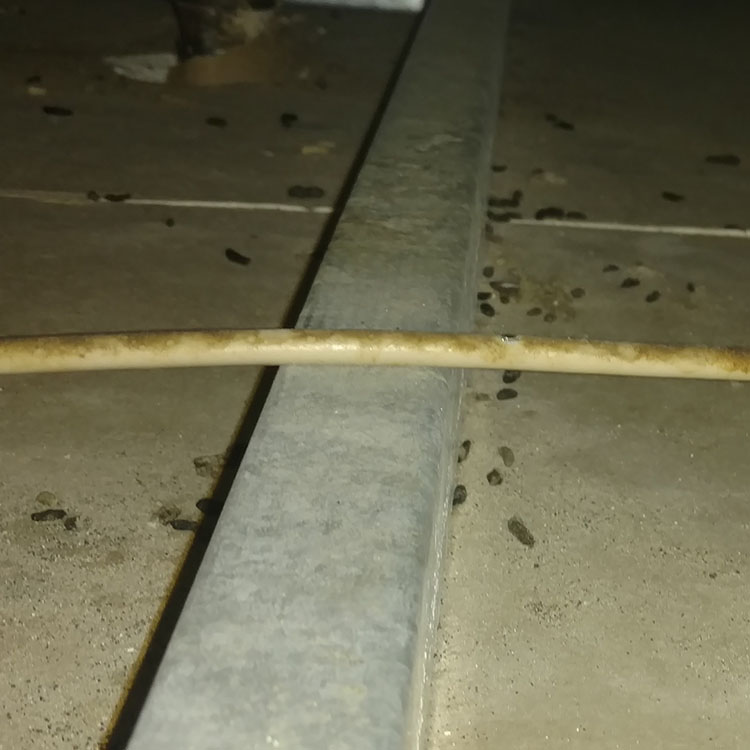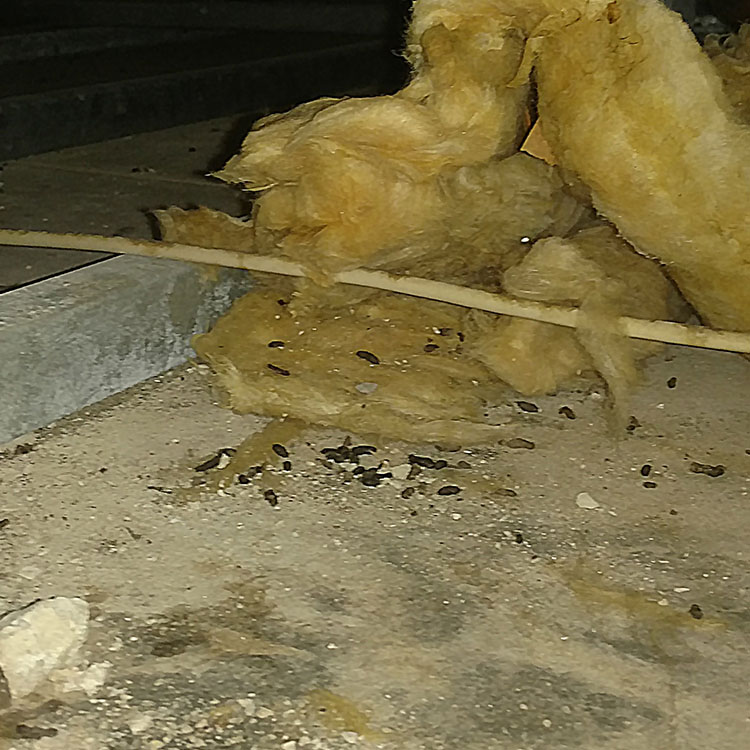Raccoon Urine
Raccoon urine is dangerous because it can carry the disease Leptospirosis. This disease commonly affects dogs, but can spread to humans. Pet owners and even non pet owners can contract this disease if you have a raccoon infestation in and aroudn your home. Special precautions must be made to ensure the safety of you and your family when dealing with this potentially life-threatening disease.

Identifying Raccoon Urine
Our technicians identify raccoon urine through odor moreso than by sight. Like the urine of most wildlife animals, it can be found in the attic insulation or soaked into drywall or plaster. In this case, you should remove and replace the insulation or panelling to make sure that you aren't succeptible to any diseasesd associated with raccoon urine.
What to Do If You Smell Raccoon Urine
The odor is immediately apparent if a raccoon has recently urinated inside of your home if you are nearby. Unfortunately, raccoons make their homes in attics, crawlspaces, and otherwise infrequently used parts of your domecile. In these spaces, you're unlikely to notice the odor for some time. I know the attic of my home is only used to store seasonal decorations and non-essentials.

Raccoon Urine Cleanup and Removal
Don't begin cleaning up raccoon urine before the raccoons have been removed from your home. It seems like common sense, but some home owners feel the need to rip out drywall and insulation, only to find out a month later that they are back to square one.
Call a Specialist for Advice
Our technicians will set up an appointment with you to do an inspection. They are familiar with all aspects of a raccoon infestation, and can tell you which parts of your home have been affected by raccoon feces and urine, and what they can do to replace or sanitize it. Yours and your family's health are at the top of our list.
Canine Leptospirosis
If your dog is infected with this harmful disease, it will be apparent. As in humans, Leptospirosis causes flu-like symptoms in the host. Vomiting, diarrhea, sore or stiff muscles, and general discomfort and nausea will be obvious. Pets are part of your family and your life, so at the first sign of Leptospirosis, contact a veterinarian immediately. Not only can this disease harm your pets, but it can easily spread to you through certain types of contact with your pet.
